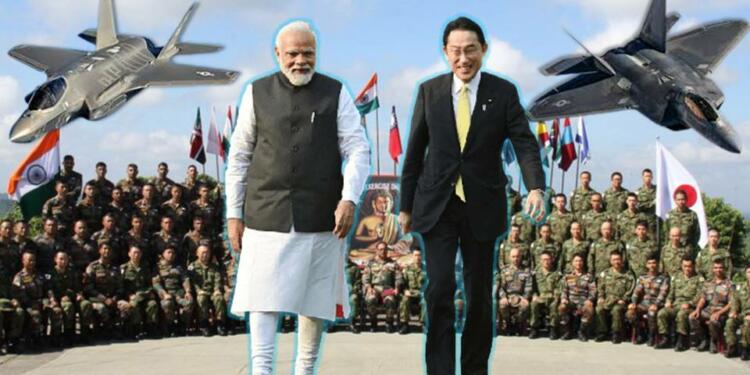The relationship between India and Japan goes back to the 6th century when Buddhism was introduced to Japan. Although after the nuclear test, Japan had become hostile towards India but now the dangers of the 21st century are once again bringing the two great nations together. The relationship has reached such an extent that Japan is now trying to develop a strategic relationship with India and in this effort; they are relaxing its policies on arms export.
A recently released news report by Nikkei Asia suggests “The Japanese government plans to allow exports of fighter jets, missiles and other arms to 12 countries, including India, Australia as well as some European and Southeast Asian nations. Regulatory changes to allow for the exports could come by next March”.
Towards Peace
The export of modern weapon systems reflects a tectonic shift in Japan’s arms export policies. It is pertinent to note that, after World War II, Japan had almost reduced its defence capacity to the minimum. The United States of America had from then become the overall security provider to the country.
Moreover, under Japan’s Policies on the Control of Arms Exports, the country blocked the arms export to “communist bloc countries, countries subject to arms exports embargo under the United Nations Security Council’s resolutions and countries involved in or likely to be involved in international conflicts”. The policy envisaged to “avoid any possible aggravation of international conflict”.
Read More: A Strong India-Japan Alliance will be the defining relationship of this century
Indo-Pacific a new battlefield
Chinese aggression in the territorial water & airspace of almost all the Southeast Asian countries has disturbed the security balance in the Indo-Pacific region. The rise of China and its assertive, aggressive, and bullying behaviour is threatening global peace.
To counter this misadventure of China, a lot of regrouping in the region has started. The Indo-Pacific countries are trying to build strong maritime security architecture against the bully. Along the line, Japan is also changing its security architecture and constantly raising its military and security capabilities.
India – The key player in the game
With the Japanese effort to make strategic alliances with like-minded countries in the region, India emerges to be the key player. Its presence in the Indian Ocean and frequent conflict along the Himalayan region make India the strategic partner of Japan.
The change reflects in the recently signed various strategic cooperation deals.
- Agreement between the Government of Japan and the Government of the Republic of India Concerning the Transfer of Defence Equipment and Technology (2015)
- Agreement between the Government of Japan and the Government of the Republic of India Concerning Security Measures for the Protection of Classified Military Information (2015)
- Agreement between Japan and the Republic of India on Social Security (2016)
- Agreement between the Government of Japan and the Government of the Republic of India for Cooperation in the Peaceful Uses of Nuclear Energy (2017)
- Agreement between the Government of Japan and the Government of the Republic of India Concerning Reciprocal Provision of Supplies and Services between the Self-Defence Forces of Japan and the Indian Armed Forces (2021)
F-X & Railguns -The Future Weapon of War
Further, Japan is looking to develop high-end next-generation fighter jets, anti-aircraft guns, and a defence system. Although the US has been continuously supplying its state-of-the-art weapon system, the growing Chinese threat has forced Japan to look for self-reliance in its defence requirements. Moreover, reports suggest that despite being one of the biggest buyers of Lockheed Martin F-35 Lightning II stealth fighter jet, Japan is prompting to develop an ‘invincible’ next-generation fighter jet by merging the capabilities of both F-22 Raptor & F-35 Lightning II under the F-3 or F-X fighter program.
According to a report in Nikkei Asia, Japan is further looking to “develop Railguns to intercept hostile missiles using magnetically powered projectiles to counter hypersonic weapons developed by China, North Korea, and Russia”. And, the recently announced change in stance on arms export policies will pave the way for cooperation in defence manufacturing. These future weapons of warfare will prove to be a nightmare for enemies and will provide strategic deterrent capabilities to all allies’ countries.
The strategic security cooperation between India & Japan will provide a balanced, secure, and rule-based global order and will also ensure peace in the Indo-Pacific region. From the propagation of religion of peace to the propagation of weapons of peace, India-Japan relations are going to prove a nightmare for enemies in the modern world.
























